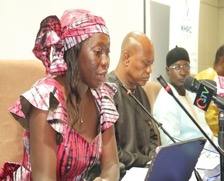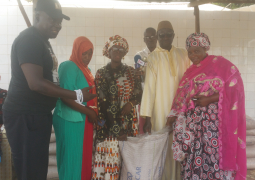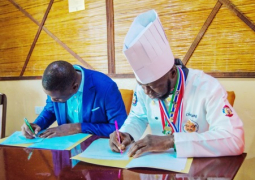
Ayesha made the remarks during a consultation between the National Human Rights Commission (NHRC) and the members of the National Assembly, where she represented the Victims’ Centre.
“I request the National Assembly, especially the select committee on human rights to work hand in hand with the government and strongly recommend to the government to have a victim-centred approach for the next stages of the TRRC process, and to provide and give utmost attention to victims who need immediate medical and psychosocial support,” she said.
She also requested that the National Assembly members work hand in hand with the government through the Ministry of Justice to ensure the remains of November 11, 1994, that are being exhumed and lying somewhere in the mortuary be looked at. She added that once they are identified, the assembly should ensure they are given back to their families for proper burials.
“I also want to request from the National Assembly members to undertake an immediate effect in searching for the remains of victims of enforced disappearances whose remains have not been identified, to be identified for proper burials.”
She requested for the families’ full access and capacity to act at all stages of the investigation and the search procedures, adding victims should be the Centre of this process.
“In other to avoid impunity and recurrence of human rights violations in the Gambia, I would request the National Assembly members to start thinking about how to work on our laws, especially Laws on how to criminalise enforced disappearances and other violations that have been meted on Gambian. They should include a subject of all these violations in the training curriculum of our law enforcement agencies.”
She called on the select committee on human rights to further engage the government through the Ministry of Justice to discuss the next stages of transitional justice and the white paper.





